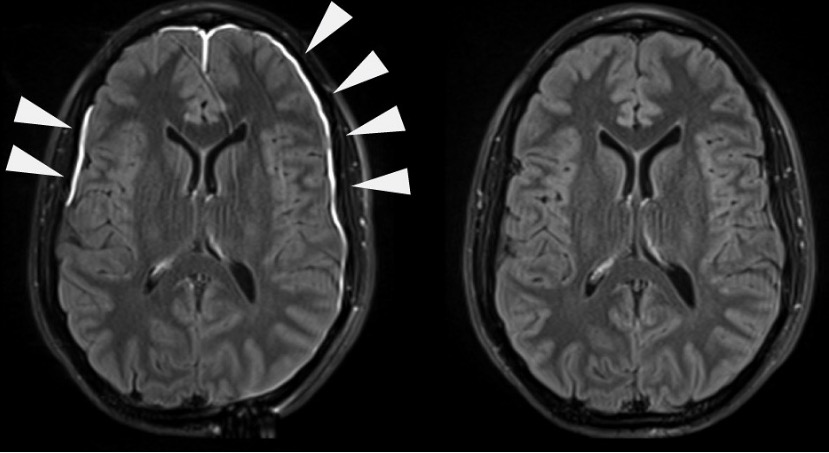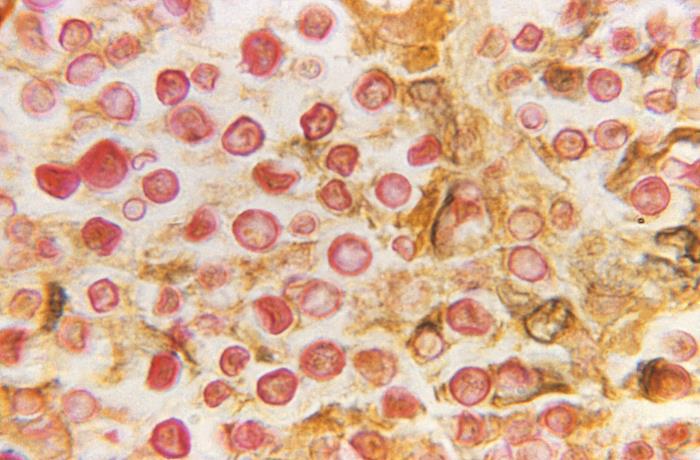Playlist
Show Playlist
Hide Playlist
Cryptococcal Meningitis
-
Slides Other CNS Infections.pdf
-
Download Lecture Overview
00:00 Let's start with cryptococcus. This causes a meningitis, cryptococcal meningitis. Those words should ring through your mind. Cryptococcus neoformans is the leading cause of an infectious meningitis in patients with AIDS. In fact, this occurs in 20% of AIDS patients in Africa. This is a fungal infection. Cryptococcus is a fungus, it's found in the soil that's contaminated with pigeon feces. Infection is acquired through inhalation or hematogenous spread to the meninges and the brain. How do patients present? Well here we see the typical clinical manifestations. Headache and fever are the hallmark of a meningitis and are seen in these patients. Typically when we're evaluating for a meningitis, we think of headache, fever, and neck stiffness, meningismus, nuchal rigidity. But meningeal signs with cryptococcal meningitis are often mild. This is not an acute meningitis, this is a slowly developing chronic meningitis where meningeal irritation is less prominent. Typically in these patients, we see other late complications from their meningitis. Signs of altered mental status, bilateral 6th nerve palsies. 01:18 Again, remember that a bilateral abducens nerve palsy is sign of elevated intracranial pressure until proven otherwise. And papilloedema, which is really important to evaluate in these patients. The diagnosis primarily involves testing the CSF and we can look for the cryptococcal antigen which is typically what's done these days for patients. Historically, we would do an India ink stain, which you can see here on the image in the right side of the slide. 01:46 The India ink labels the capsule that is around this fungus and you can see it here, the organism on the inside and the capsule is highlighted around the outside. This is commonly tested and something that you should be familiar with. And this is a fungal infection so we treat it with antifungals, amphotericin B often followed by fluconazole. Cryptococcal meningitis.
About the Lecture
The lecture Cryptococcal Meningitis by Roy Strowd, MD is from the course CNS Infections.
Included Quiz Questions
Which of the following characterizes cryptococcal meningoencephalitis?
- It has a subacute onset.
- It causes a self-limited inflammation of the leptomeninges.
- It is treated empirically with fluconazole.
- Brain imaging would reveal multiple small cystic lesions.
- It is acquired through the ingestion of undercooked meat.
Customer reviews
5,0 of 5 stars
| 5 Stars |
|
5 |
| 4 Stars |
|
0 |
| 3 Stars |
|
0 |
| 2 Stars |
|
0 |
| 1 Star |
|
0 |





